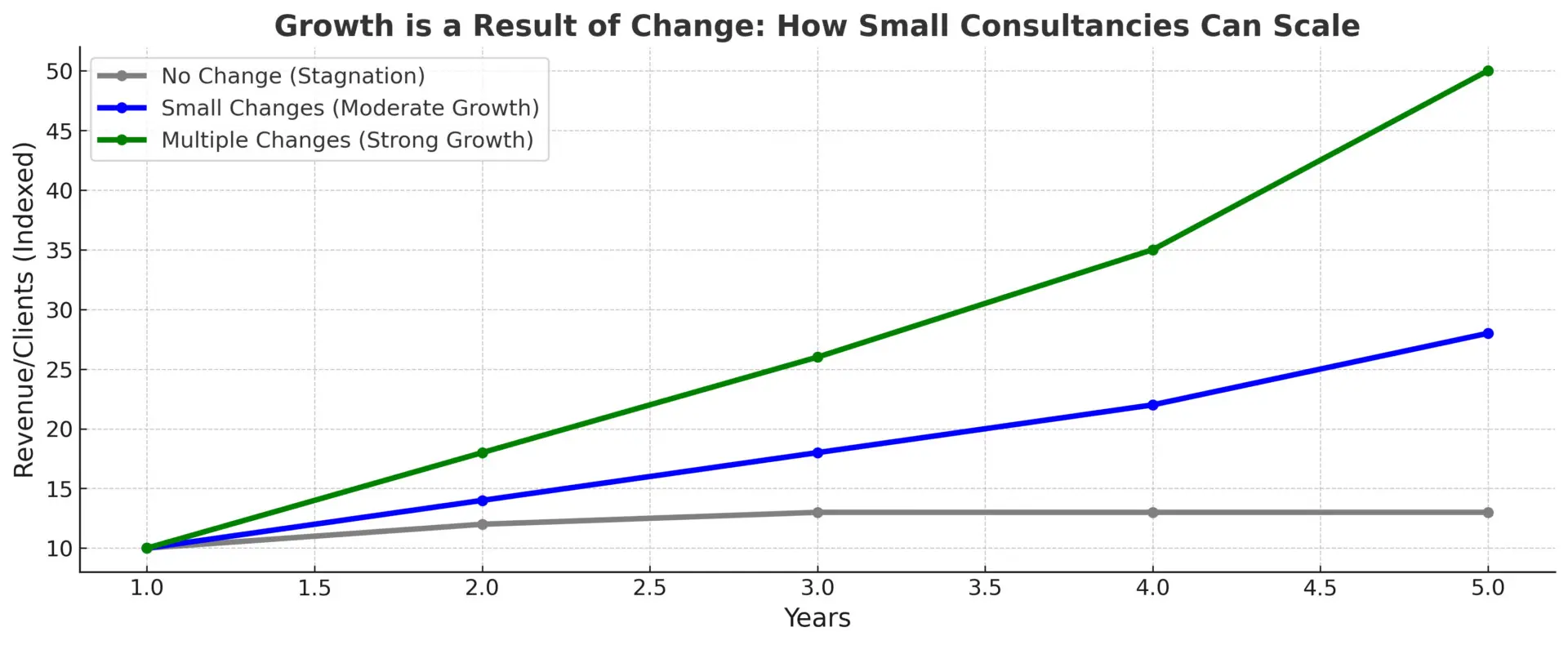
In a world where business environments are constantly changing and uncertainty is the norm, effective leadership demands more than just knowledge and decisiveness. It also requires a willingness to question assumptions, remain open to new possibilities, and navigate ambiguity with confidence. This is where Skepticism, a philosophical tradition dating back to ancient Greece, becomes a valuable tool for modern leaders.
Skepticism, in its philosophical form, challenges the belief that we can have absolute certainty about knowledge. Skeptics argue that true knowledge is often elusive, and therefore, we should suspend judgment, remain open to doubt, and critically examine our assumptions. While this may seem like a counterproductive mindset for leaders, it actually promotes more thoughtful decision-making, adaptability, and ethical behavior — all critical qualities in today’s complex business landscape.
This article introduces the concept of Skepticism and highlights several key figures from history whose Skeptical philosophies offer profound lessons for leadership today.
One of the core teachings of Skepticism is that we should recognize the limits of our knowledge. This principle is especially relevant to leaders who often face uncertain situations, whether it’s a volatile market or a rapidly changing competitive landscape. Philosophers like **Pyrrho of Elis**, the founder of **Pyrrhonism**, emphasized that we should suspend judgment in situations where knowledge is incomplete. Rather than rushing to conclusions, a Skeptical approach helps leaders evaluate multiple perspectives and consider the complexity of the situation before acting.
By understanding that we rarely have all the information we need, leaders can make better decisions, avoid premature actions, and navigate ambiguity with greater confidence.
A Skeptical mindset promotes critical thinking and challenges the blind acceptance of ideas. This is crucial for leaders who wish to foster innovation and avoid groupthink — a phenomenon where group consensus stifles dissent and leads to poor decision-making. Michel de Montaigne, a French Renaissance philosopher, championed the value of doubt and the need for intellectual humility. He believed that human beings are prone to error, and questioning our assumptions is essential for gaining true wisdom.
In a business context, Montaigne’s approach encourages leaders to create environments where questioning the status quo is not only allowed but encouraged. This culture of openness can lead to more creative problem-solving and a broader range of insights.
In the fast-paced, ever-evolving world of business, adaptability is a key leadership trait. The Skeptical philosopher Sextus Empiricus, who expanded upon Pyrrho’s teachings, argued that since we cannot be certain about many things, it is best to remain flexible and open to change. This mindset aligns perfectly with modern leadership, where strategies and decisions must frequently be revisited and revised in response to new information.
Leaders who embrace Skepticism are more likely to remain open to new ideas and adjust their strategies as needed, ensuring they stay relevant and effective in an unpredictable environment.
Skepticism is not just about questioning knowledge — it also has ethical implications. Skeptics encourage us to question moral assumptions and consider the broader impact of our actions. David Hume, an Enlightenment philosopher, applied a Skeptical lens to human reasoning and morality, suggesting that we should be cautious about our ethical judgments. This approach can help leaders avoid overconfidence in their moral reasoning and instead foster a more thoughtful and responsible decision-making process.
In leadership, where decisions can have wide-ranging consequences for employees, communities, and the environment, a Skeptical approach to ethics promotes accountability and a deeper consideration of the potential outcomes.
Human thinking is often influenced by biases, emotions, and personal convictions that distort judgment. René Descartes, while not a pure skeptic, introduced the idea of methodical doubt as a way to strip away false beliefs and arrive at certainty. Descartes’s approach to questioning everything until only the most fundamental truths remain can help leaders recognize their own cognitive biases and make more objective decisions.
Leaders who are aware of their biases and remain skeptical of their first impressions can make better decisions by considering evidence more carefully and seeking out diverse perspectives.
Skepticism encourages a mindset of continuous questioning, which is vital for innovation. Karl Popper, a 20th-century philosopher of science, is known for his theory of falsifiability, which holds that scientific theories are never definitively proven but can only be disproven. Popper’s Skepticism about certainty in science is directly applicable to leadership, where assumptions and strategies should constantly be tested and refined.
A Skeptical leader promotes a culture of experimentation, where failures are seen as opportunities to learn and improve. This mindset not only drives innovation but also creates a more resilient organization.
Leaders who embrace the principles of Skepticism are better equipped to handle the complexities of the modern world. By recognizing the limits of their knowledge, fostering critical thinking, staying adaptable, and questioning ethical assumptions, they can navigate uncertainty with greater wisdom and confidence. Rather than viewing Skepticism as a hindrance, leaders should see it as a tool for fostering open-mindedness, continuous learning, and more effective leadership.
Skeptical thinkers from Pyrrho to Taleb remind us that doubt is not a weakness but a strength. In leadership, embracing Skepticism leads to better decision-making, more innovative thinking, and ultimately, more responsible and adaptive organizations.


